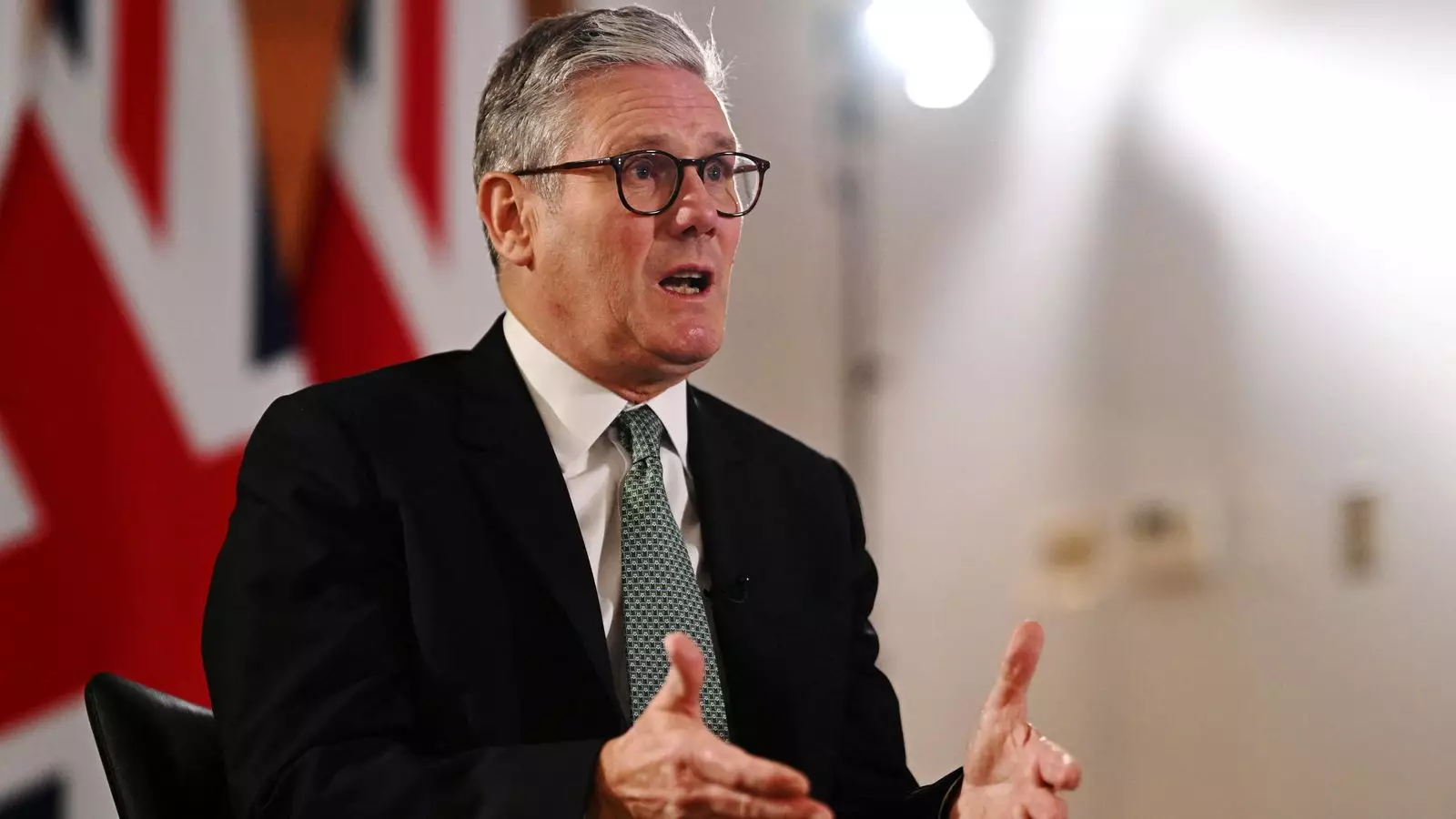Politics often finds itself intertwined with personal narratives, and the recent revelations regarding Sir Keir Starmer’s acceptance of a significant donation raise important questions. While Starmer has defended his actions as necessary for the well-being of his family, particularly his son during the exam period, the implications for transparency in political donations cannot be overlooked. This article seeks to critically examine the nuances of this situation, exploring its ramifications for Starmer, his party, and the wider political landscape.
The controversy began with the disclosure of a £20,000 donation in connection with a flat provided by Lord Waheed Alli, which Starmer used as temporary accommodation during the election period. The timing of the donation coincided with the call for elections shortly before his son’s examination period. This backdrop evokes a critical analysis of the ethical dimensions of political donations, especially when they are intended to mitigate personal pressures faced by public figures. Starmer’s promise to protect his family amidst the chaos of an election campaign adds a layer of complexity to the narrative, suggesting that even the most well-meaning intentions can spark public scrutiny.
Starmer’s claim that “no money exchanged hands” refers to the accommodation arrangement as a gesture rather than a transactional donation. Herein lies a pivotal issue—how do we define the boundaries of ethical donations in politics? As political figures navigate personal circumstances that intersect with their public duties, the clarity between what is personal and political often blurs, creating fertile ground for criticism.
Public perception plays a critical role in shaping the political landscape, and Starmer’s situation highlights this dynamic poignantly. Amid growing criticism for accepting a substantial amount of donations, he faces a credibility challenge, especially when juxtaposed against his past criticisms of Conservative MPs regarding similar issues. Starmer’s opponents may perceive this as hypocrisy, questioning whether his actions align with his vocal commitments to transparency and accountability. Thus, while Starmer attempts to frame the donations within a familial context, the political ramifications are far-reaching.
This pressure is further compounded by the backdrop of criticism surrounding the government’s decisions on taxation and fiscal policies. In an environment of heightened scrutiny over government spending, Starmer’s acceptance of donations—even for justifiable reasons—becomes ripe for political fodder. As Labour’s leader navigates this landscape, it raises a fundamental inquiry about the nature of political integrity: how do leaders maintain trust when their actions could be interpreted as self-serving or inconsistent with their party’s values?
The Conversation on Donation Ethics
The issue of political donations is not confined to Starmer alone; it flares up broader discussions about the ethics of financial contributions to political figures in general. The Labour Party’s reliance on Lord Alli, who has contributed significantly over the years, sparks a conversation about whether such connections compromise independence and impartiality. With Lord Alli standing as the party’s largest personal donor, questions emerge regarding influence and the potential expectations tied to monetary support.
In this context, Starmer’s remarks regarding accepting donations appear to be fortified by a personal narrative; he asserts that political donors have a human story behind their contributions. Yet, this assertion requires introspection—do the stories justify the acceptance of potentially compromising donations? The answer to this is nuanced, as it intersects with systemic issues regarding lobbying, financial influence in politics, and the governing norms of conduct.
As Sir Keir Starmer and the Labour Party navigate these challenging waters, the question remains as to how they can reinforce a commitment to transparency and ethical conduct in a way that resonates with the public. Starmer’s declaration of no longer accepting clothing donations is a commendable first step, signaling a desire to evolve beyond the perceived conflicts of interest. However, the path towards fostering trust will require a more systemic reevaluation of how political donations are approached within the UK political framework.
Moreover, there perhaps needs to be a concerted effort across the political spectrum to establish clear guidelines and transparency regarding political contributions. This would help diminish the grey areas that often lead to public cynicism toward politicians. Ultimately, as the political landscape evolves, the discourse surrounding donations must evolve likewise, reinforcing that political integrity and transparency are paramount in garnering public trust.
While Sir Keir Starmer’s actions may have been rooted in familial concern, the implications of his accepted donations open the door to profound conversations regarding ethics in politics, accountability, and the quest for transparency.

Leave a Reply